The Liberals and the U Party have the referendum in their hands: this is how the forces are moving toward the decisive vote.

The outcome of the referendum vote, scheduled for this Wednesday in the Senate plenary session, will set the pace of national politics for the coming months.
Tomorrow, the discussion of the 12 questions is expected to begin, with which the Government seeks to revive some of the points that were lost following the decision of Commission VII to shelve its labor reform. Although this decision was legitimate, it breathed new life into the Executive Branch, which not only lashed out and heightened the tone of confrontation with Congress, but also reactivated its core.
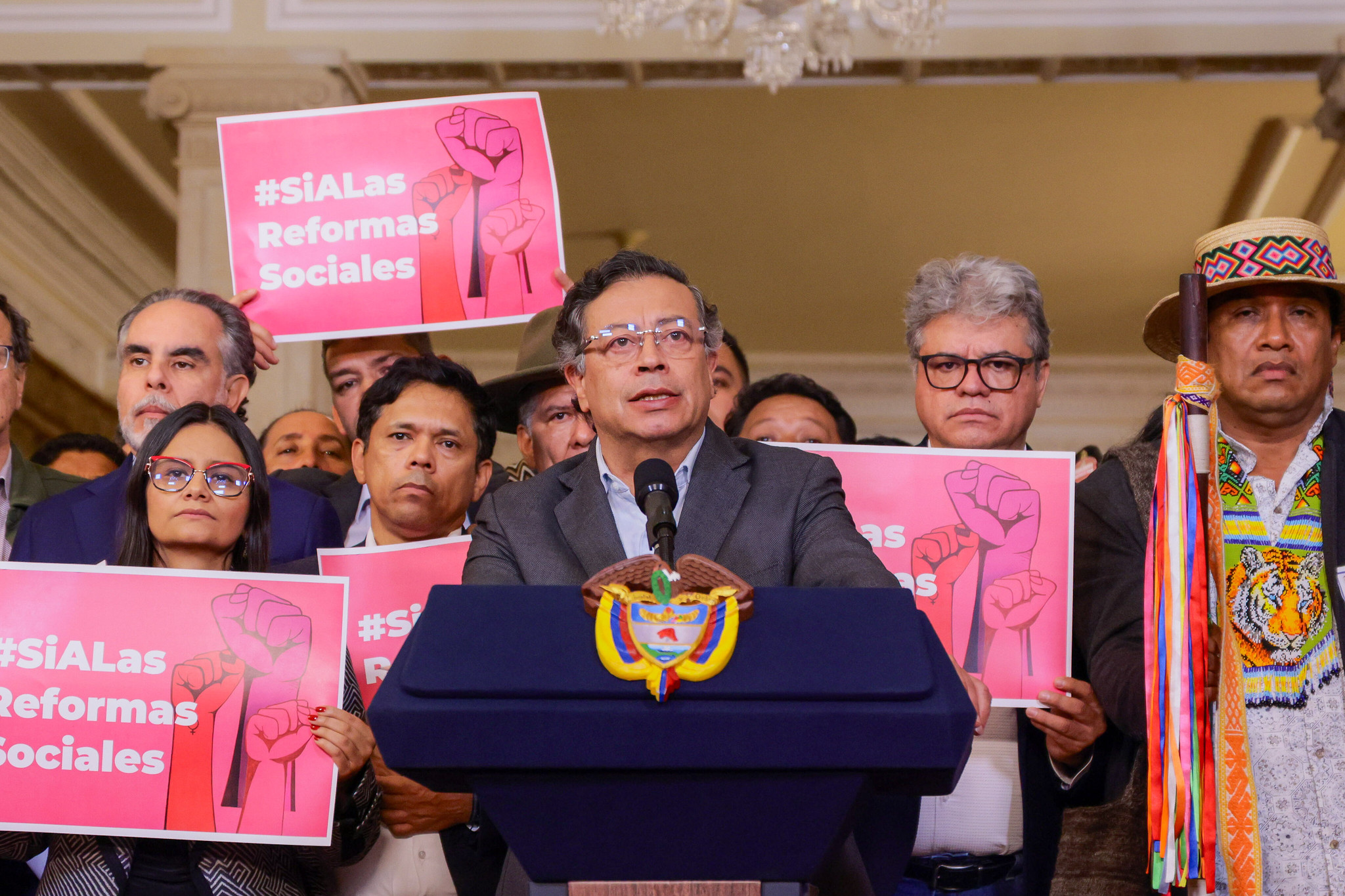
President Petro spoke in a speech about the referendum. Photo: Joel Gonzalez. Presidency
The ball—as President Gustavo Petro said when he presented the referendum amid the Labor Day protests, holding the sword of Bolívar—is now in the Senate, which must decide by a simple majority whether to give the green light for Colombians to go to the polls or deny the executive branch's intention.
Unlike other elections, this outcome is difficult to predict, and today there is no clear winner.
The Conservatives, Uribe supporters, Radical Change, Mira, and Colombia Justa Libres are expected to vote "no." Meanwhile, the Historic Pact, Comunes, and a large part of the Green Alliance will support "yes." In this scenario, it will be the Liberals and the Partido de la U (U Party) that tip the balance.
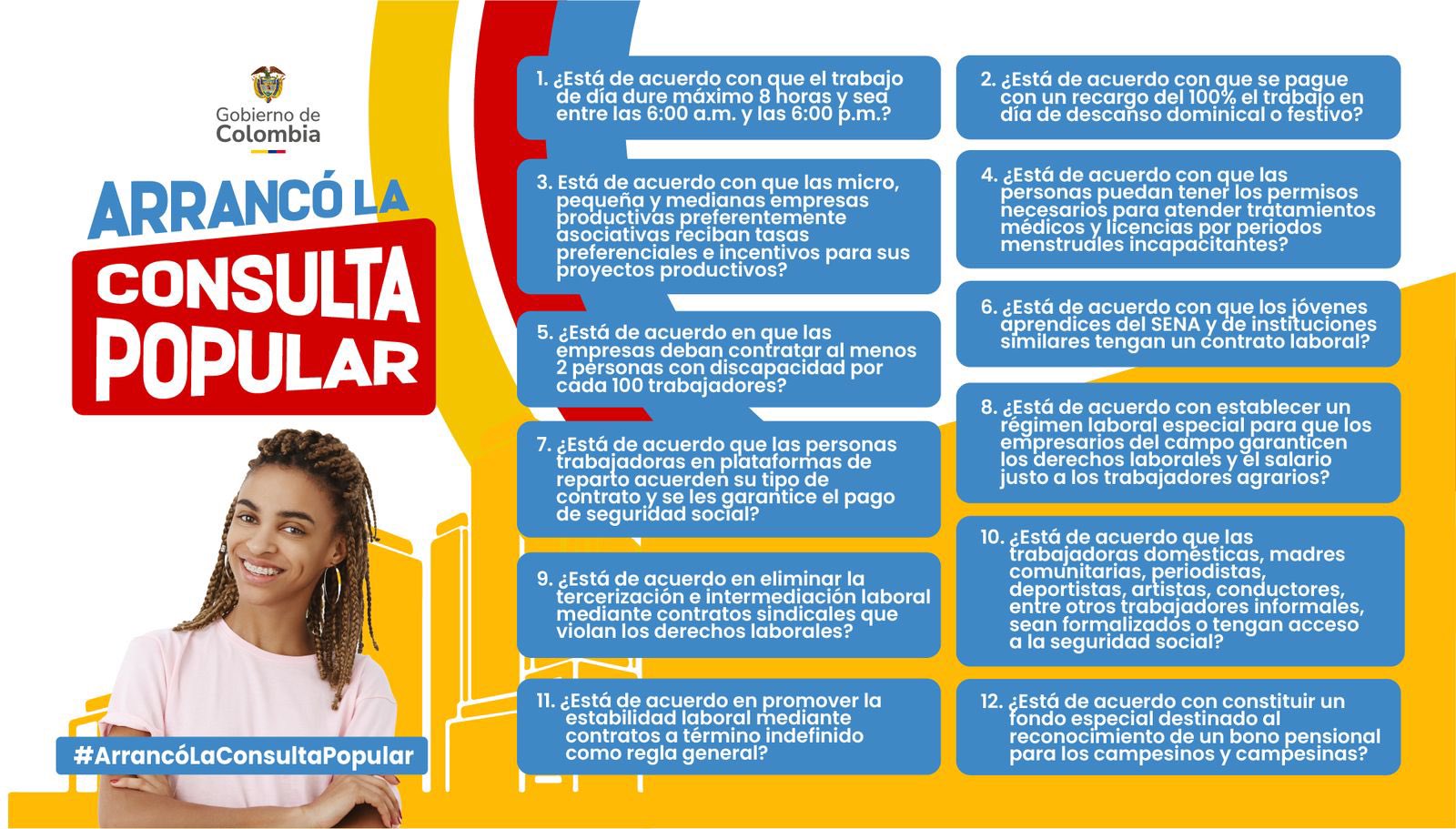
These are the 12 questions from the government's referendum. Photo: Ministry of the Interior
Political movements are centered around these two groups. Not surprisingly, the resume of the new Minister of Trade was published on the presidential website early Saturday morning. Since the last cabinet reshuffle, a position promised to liberal sectors to ensure their support in the referendum process has been promised.
This is Diana Marcela Morales Rojas, currently secretary of the Fourth Committee of the House of Representatives and a member of the Liberal Party. Some sectors interpret this appointment as a pre-referral strategy, where every vote counts.

Diana Marcela Morales will replace Luis Carlos Reyes. Photo: EL TIEMPO
However, the ruling Liberal Party has distanced itself from the issue. Former President César Gaviria, the party's director, insisted that they are not part of the government and will not support the referendum. "It is necessary to clarify that this alleged appointment, and the Congressional official, do not represent or interpret the position of the Liberal Party, which is independent of the current government, much less of the unnecessary and improvised referendum mechanism promoted by the Executive Branch," the former president stated.
However, it cannot be ignored that the Liberal Party has supported the government on several occasions, especially in the Chamber of Deputies, where this support has been most evident. In the Senate, for example, Liberal senators were instrumental in the approval of the pension reform.
As for the "La U" Party, to which Interior Minister Armando Benedetti belonged and where it still has influence, it already has a ministry: the Ministry of Information and Communications Technology, which could be crucial in securing support.
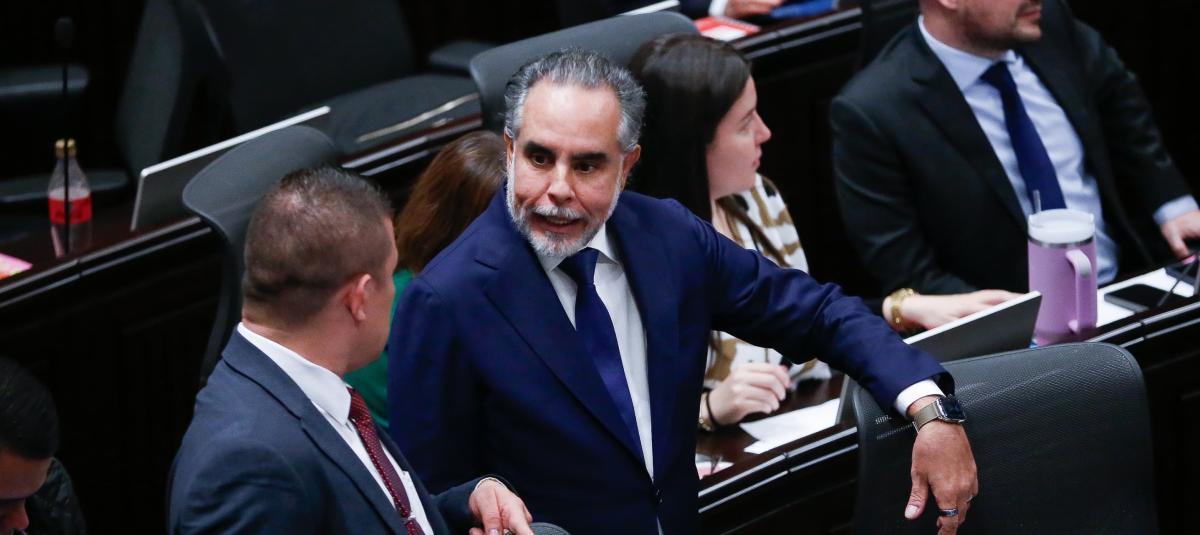
Armando Benedetti, Minister of the Interior. Photo: NESTOR GOMEZ/EL TIEMPO
Various sectors have warned about the inconvenience it would have for Colombian democracy to hold a referendum in a pre-election year. Even the Catholic Church has warned that this could exacerbate political polarization and once again divide the country between the "yes" and "no" votes. Furthermore, registrar Hernán Penagos has warned that organizing a referendum in less than three months is a considerable logistical challenge. The cost, which could reach 700 billion pesos, is also a source of concern.
For these reasons, several sectors have called for a new agreement between Congress and the government, whose relationship is experiencing tension, to advance a reform that benefits workers.
To achieve this, there are two paths. On the one hand, reviving the labor reform and continuing its progress, as suggested by former Senator Humberto de la Calle: "The appeal should be accepted and the discussion reopened in Congress in order to approve labor rights that already existed, with a careful framework of exceptions for some activities." On the other hand, a consensus could be reached with the reform presented by the Liberals, which proposes a nighttime surcharge starting at 7 pm and 100% pay on Sundays and holidays. This proposal could also include payment for young workers in the SENA (National Electoral Service).
All of this is intended to prevent the referendum, which, De la Calle added, "could be a major wave with a serious impact on the 2026 process. It could become a milestone that galvanizes the pro-Petrista forces."
Heráclito Landinez, representative of the Historic Pact: "There's no electoral campaign behind it." House Representative Heráclito Landinez speaks about the referendum vote.
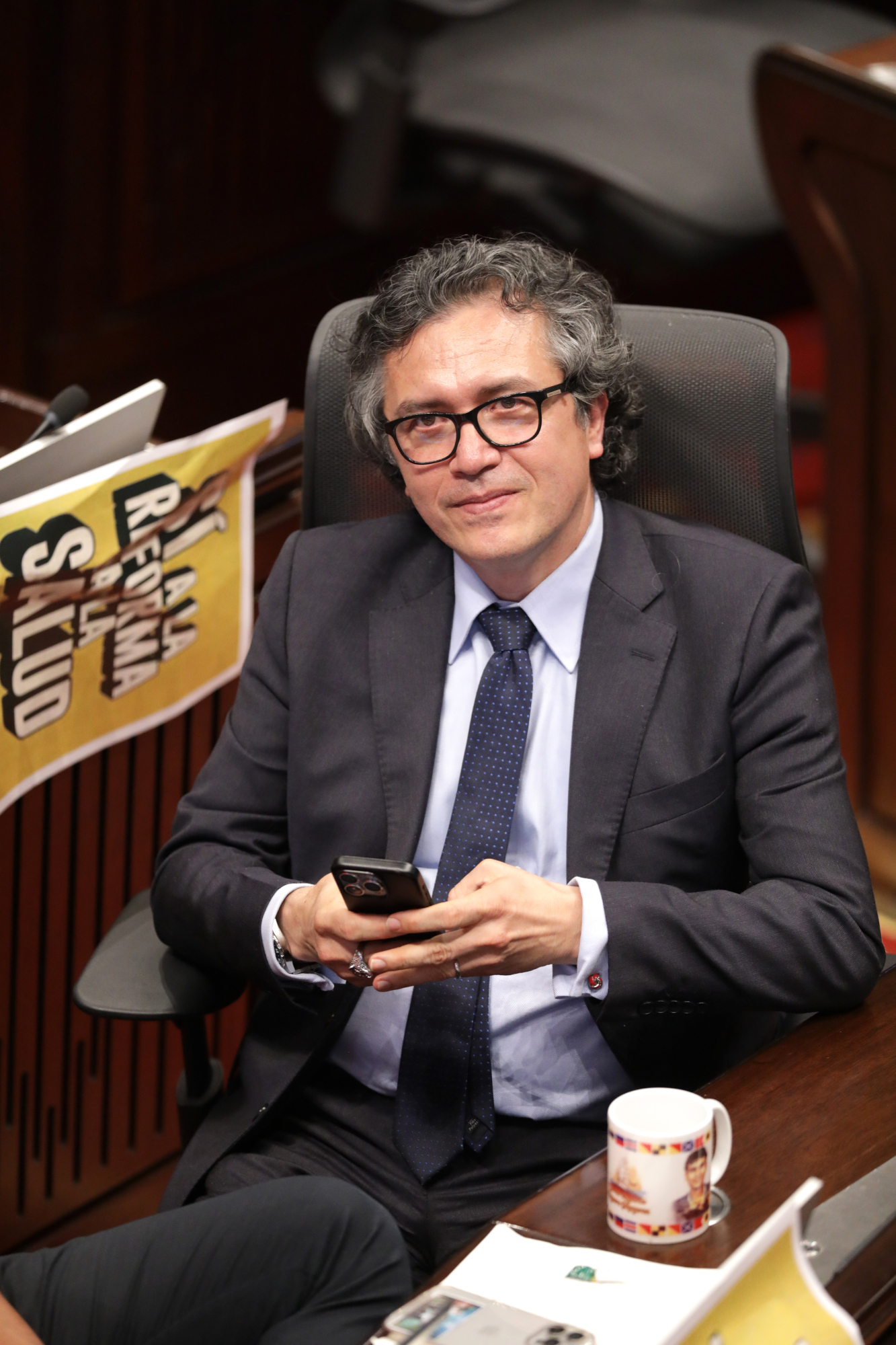
Heraclito Landinez Heraclito Landinez, House Representative for the Mais party. Photo: César Melgarejo/El Tiempo @cesarmelgarejoa
It will be a fairly close vote, but we believe there is an overwhelming majority of senators who believe a referendum should be approved to call on citizens to express their opinion on the referendum. It's a close vote, but we're confident we can secure the majority.
Why do you insist that the Senate cannot deny the people the opportunity to speak? The Senate, like all congressmen, represents the people; they exercise representative democracy. Therefore, in a decision like labor reform, they must listen to the primary constituent, the people, who hold sovereignty over public powers. The Senate should not deny popular consultation. It should not deny support for popular consultation.
The bill presented by some liberals doesn't even contain the essential reform. It's talking about including nighttime surcharges starting at 7 p.m.
In the Senate, it was difficult to reach a consensus on labor reform. The bill presented by some liberals doesn't even contain the essential elements of the reform. There is talk of including nighttime surcharges starting at 7 p.m., but with exceptions. Therefore, this labor reform proposal is not viable because it lacks the essence of the one presented by the National Government. We believe it shouldn't even be debated.
What do you say to those who say the referendum is based on an electoral strategy by the Historic Pact, aiming for 2026? It's not a political position, it's not an electoral campaign. It's resorting to a constitutional mechanism, which is consulting the Colombian people on an issue of national interest, such as the working conditions of Colombians.
Carlos Fernando Motoa, senator for Cambio Radical: "This is not the time for hesitation or lukewarmness." Opposition Senator Carlos Fernando Motoa is confident that the referendum will not pass in the Senate.
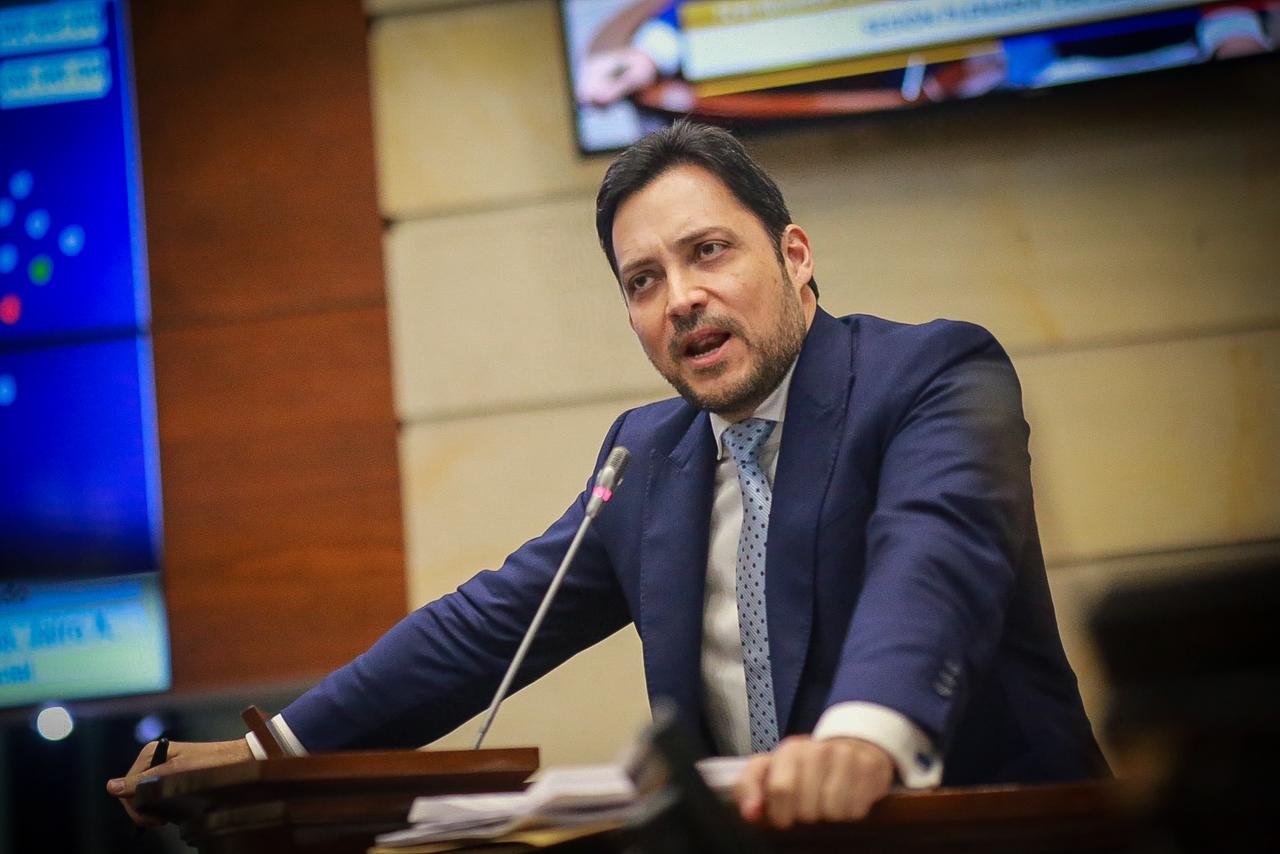
Carlos Fernando Motoa, senator of Cambio Radical (Radical Change) Photo: Senate Press
We hope that the arguments we have presented regarding its inconvenience and inappropriateness will be taken into account by the various parties. Although Cambio Radical, Centro Democrático, and a faction of the Conservative Party will not support the referendum, there are still groups pending to define their position. Therefore, the opposition and government supporters are currently at a dead heat. Hopefully, the undecided among the parties that call themselves independent will join us in voting "no." This is not the time to improvise or give President Petro a way out, as he is desperate to speed up the 2026 campaign . We are attentive to what may happen with the Liberals, the "U" Party, and other independent parties.
If this is denied, the government would launch new attacks on Congress. How can we resist this? With fortitude, regular mobilizations, and response from venues like the press. Just as on other occasions, when Congress also resisted this president's attacks. It's worth emphasizing that without fear, Petrism is nothing. Therefore, it's up to us to remain firm and consistent, knowing that we're doing the right thing and that the arguments are on our side. This is not the time to hesitate or show lukewarmness.
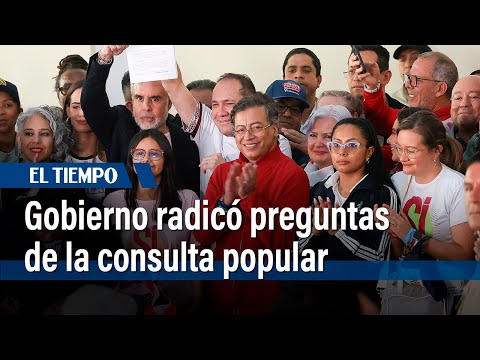
Filing of the referendum. Photo:
We are in a pre-election situation because tempers are running high due to a particularly polarizing president and because safeguards are lacking in many regions of the country, where neglect is total and insecurity is rife.
Is there an electoral strategy behind the referendum? Of course. That's why many in Congress will vote no. It's no secret that Petro is proposing this referendum to divert public attention from his failures.
You may be interested 
#Politicking with María José Pizarro Photo:
eltiempo





